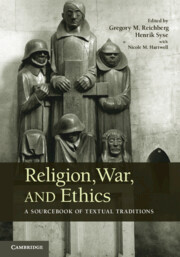Book contents
- Frontmatter
- Contents
- Notes on Contributors
- Preface
- Introduction
- 1 Judaism
- 2 Catholic Christianity
- 3 Eastern Orthodox Christianity
- 4 Protestant Christianity
- 5 Sunni Islam
- 6 Shi‘ite Islam
- 7 Hinduism
- 8 The Buddhist Traditions of South and Southeast Asia
- 9 Chinese and Korean Religious Traditions
- 10 The Religious Traditions of Japan
- 11 Sikh Tradition
- Index
- References
4 - Protestant Christianity
Published online by Cambridge University Press: 05 June 2014
- Frontmatter
- Contents
- Notes on Contributors
- Preface
- Introduction
- 1 Judaism
- 2 Catholic Christianity
- 3 Eastern Orthodox Christianity
- 4 Protestant Christianity
- 5 Sunni Islam
- 6 Shi‘ite Islam
- 7 Hinduism
- 8 The Buddhist Traditions of South and Southeast Asia
- 9 Chinese and Korean Religious Traditions
- 10 The Religious Traditions of Japan
- 11 Sikh Tradition
- Index
- References
Summary
Protestant Christianity emerged from the Roman Catholic tradition in the fifteenth century, spurred by the desire to “return” to the original precepts of Christianity. Its numerous denominations’ histories, practices, and theologies differ, but all share a commitment to following the teachings of Christ as laid out in the Bible, which is understood to be the primary source of faith and practice. Protestants claim that all believers have the right and duty to interpret the Bible for themselves. Likewise, the role of individual conscience and a direct relationship with God are often emphasized. For this reason, although some denominations are hierarchically organized, their spiritual leaders tend to be seen as educated guides, rather than as possessing superior spiritual authority.
Introduction
Encapsulating a single Protestant perspective on just war is impossible. The multitude of Protestant denominations are united as much by what they are not (Catholic, Orthodox) as by what they are in terms of theology or practice. The emphasis placed on individual conscience adds further complexity. This chapter focuses on various denominations’ political relations with their states as a framework for analyzing their perspectives on war. Denominations whose relations with governments are distant or troubled tend toward pacifistic stances. Denominations granting governments authority over the secular sphere, but within strictly defined limits, generally have perspectives resembling Catholic just war theory. Denominations preferring a government uniting the secular and theological spheres sometimes even express perspectives tantamount to holy war.
- Type
- Chapter
- Information
- Religion, War, and EthicsA Sourcebook of Textual Traditions, pp. 235 - 299Publisher: Cambridge University PressPrint publication year: 2014



